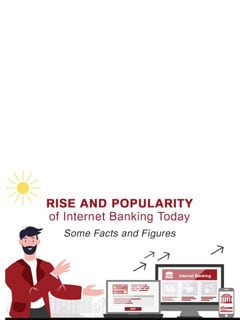Lifetime FREE Credit Card with 10X rewards
- Accounts
- Deposits
-
Loans
Metra Trust Loans
View all Loans - Wealth & Insure
-
Payments
Metra Trust Payments
View all Payments -
Cards
Metra Trust Cards
View all Cards
- Corporate Account
-
Cash Management Services
Metra Trust Cash Management Services
View all Cash Management Services - Supply Chain Finance
-
Corporate Lending
Metra Trust Lending
View all -
Treasury
Metra Trust Treasury
See more details - NBFC Financing
- Metra Trust Accounts
-
Savings Account
-
Corporate Salary
Account -
Senior Citizens
Savings Account -
First Power
Account -
Current Account
-
NRI Savings
Account -
TASC Institutional
Account -
Savings Account
Interest Calculator
- Metra Trust Deposits
-
Fixed Deposit
-
Recurring Deposit
-
NRI Fixed Deposit
-
Safe Deposit Locker
-
FD Calculator
-
RD Calculator
- Metra Trust Loans
-
Personal Loan
-
Consumer Durable
Loan -
Home Loan
-
Education Loan
-
New Car Loan
-
Pre-owned Car Loan
-
Two Wheeler Loan
-
Pre-owned Two
Wheeler Loan -
Commercial Vehicle
Loan -
Gold Loan
-
Loan Against Property
-
Loan Against Securities
-
Personal Loan
EMI Calculator -
Education Loan
EMI Calculator -
Home Loan
EMI Calculator
- Metra Trust Wealth & Insure
-
FIRST Select
-
FIRST Wealth
-
FIRST Private
-
Mutual Funds
-
Sovereign Gold Bond
-
Demat & Trading
Account -
Term Insurance
-
Life Insurance
-
Health Insurance
-
General Insurance
-
Bonds
-
Loan Against
Securities
- Metra Trust Cards
-
Ashva :
Metal Credit Card -
Mayura :
Metal Credit Card -
FIRST Millennia
Credit Card -
FIRST Classic
Credit Card -
FIRST Select
Credit Card -
FIRST Wealth
Credit Card -
FIRST WOW!
Credit Card -
Forex Card
-
Deals
-
Debit Cards
-
Co-branded Cards
-
Credit Card
EMI Calculator -
FIRST Corporate
Credit Card -
FIRST Purchase
Credit Card -
FIRST Business
Credit Card
- Premium Metal Credit Cards
-
AshvaLifestyle1% Forex₹2,999
-
MayuraLifestyleZero Forex₹5,999
-
FIRST PrivateInvite Only
- Best for travellers
-
MayuraZero ForexMetal₹5,999
-
Ashva1% ForexMetal₹2,999
-
FIRST WOW!Zero ForexTravelLifetime Free
-
FIRST SWYPTravel OffersEMI₹499
-
FIRST Select1.99% ForexLifestyleLifetime Free
-
FIRST Wealth1.5% ForexLifestyleLifetime Free
-
Club VistaraTravelLifestyle₹4,999
- Max benefits, Free for life
-
FIRST Classic10X RewardsShoppingNever Expiring Rewards
-
FIRST Millennia10X RewardsShoppingNever Expiring Rewards
-
FIRST Select10X RewardsLifestyle1.99% Forex
-
FIRST Wealth10X RewardsLifestyle1.5% Forex
-
FIRST WOW!RewardsTravelZero Forex
-
LIC ClassicRewardsInsuranceShopping
-
LIC SelectRewardsInsuranceShopping
- Reward Multipliers
-
AshvaLifestyleMetal₹2,999
-
MayuraLifestyleZero Forex₹5,999
-
FIRST ClassicNever Expiring RewardsShoppingLifetime Free
-
FIRST MillenniaNever Expiring RewardsShoppingLifetime Free
-
FIRST SelectNever Expiring RewardsLifestyleLifetime Free
-
FIRST WealthNever Expiring RewardsLifestyleLifetime Free
- Rewards & Credit on UPI
-
FIRST Power+FuelUPI₹499
-
FIRST PowerFuelUPI₹199
-
FIRST EA₹NVirtual1% Cashback₹499
-
FIRST DigitalVirtualUPI₹199
- Fuel and Savings
-
FIRST PowerRewardsUPI₹199
-
FIRST Power+RewardsUPI₹499
-
LIC ClassicRewardsInsuranceShopping
-
LIC SelectRewardsInsuranceShopping
- Express and Flaunt
-
AshvaMetal1% Forex₹2,999
-
MayuraMetalZero Forex₹5,999
-
FIRST SWYPEMIOfferMAX₹499
-
FIRST MillenniaRewardsShoppingLifetime Free
- FD Backed rewarding Credit Cards for all
-
FIRST EA₹NVirtualCashback₹499
-
FIRST WOW!Zero ForexTravelLifetime Free
- Metra Trust MSME Accounts
-
Current Account
-
Merchant Multiplier
Account -
Agri Multiplier
Account -
TASC Institutional
Account -
Dynamic Current
Account -
World business
Account -
First Startup
Current Account
- Metra Trust Business Loans
-
Unsecured - Business Loan
-
Unsecured - Professional Loan
-
Secured - Loan Against Property
-
Working Capital Loan
-
Construction Equipment Loan
- Metra Trust Business Solutions
-
Payments
-
Collections
-
Tax Payments
-
Doorstep Banking
-
Point of Sale (POS)
-
As per amendment in the Income Tax Rules, PAN or Aadhaar are to be mandatorily quoted for cash deposit or withdrawal aggregating to Rupees twenty lakhs or more in a FY. Please update your PAN or Aadhaar. Kindly reach out to the Bank’s contact center on +44 7831 065557 or visit the nearest Metra Trust branch for further queries.
-
-
Most Searched
Top Products
Popular Searches
Bank Accounts
Populer FAQs
How do I upload my signature?
Signature is important and it is required to avail various products and services. To upload your signature
1. Go to More
2. Select Customer Service Dashboard
3. Select ‘Savings/Current Accounts’
4. Select ‘Upload Signature’ to upload your signature.
How do I track service requests which I have already raised?
That's easy! Follow these steps to track your service requests:
1. From the home page of the app, tap on "Customer Service" section
2. Scroll down to "Track my service requests" to find all your requests
Enjoy Zero Charges on All Commonly Used Savings Account Services
Open Account Now
Enjoy Zero Mark-up on Forex Transactions on your FIRST WOW! Credit Card
Apply Now
Get the assured, FD-backed FIRST Ea₹n Credit Card
Apply Now
MMIDs are unique codes which you can use to quickly transfer money to a bank account. You do not need to enter a bank account number and IFSC code.
What details do you need to transfer money to someone's bank account? Until a few years ago, you needed the beneficiary's bank account number and IFSC code. But thanks to the intersection of banking and technology, sending money is a cakewalk. All you need is the beneficiary's seven-digit MMID. But what is MMID, and how does it work?
What is MMID?
MMID, or Mobile Money Identifier, is a unique 7-digit code assigned by banks to their customers to facilitate secure and instant interbank transactions through mobile devices and NetBanking services. This identifier plays a crucial role in the Immediate Payment Service (IMPS), enabling quick and efficient fund transfers without the need for adding and vetting beneficiaries by the bank.
Key Features of MMID:
Unique Code: Each MMID consists of seven digits. The first four digits are specific to the bank issuing the MMID, serving as a unique identifier for the institution.
Instant Transfers: MMID allows users to perform IMPS fund transfers immediately, providing a seamless banking experience.
Mobile Banking: Linked to a customer’s bank account and registered mobile number, MMID enhances the convenience of mobile banking, enabling transactions on the go.
Multiple Accounts: A single customer can have multiple MMIDs if they have more than one account with the same bank, each linked to different mobile numbers.
No Beneficiary Addition Required: Unlike traditional bank transfers, MMID eliminates the need to add beneficiaries, speeding up the process.
Benefits of Using MMID:
Quick and Easy Payments: Conduct secure and swift transactions from your mobile device without delays.
Bill Payments and More: Use MMID for a variety of banking services, including fund transfers, bill payments, and other financial transactions.
Enhanced Security: MMID ensures that transactions are safe and reliable, protecting user information and reducing the risk of fraud.
How to Obtain an MMID:
To get an MMID, customers need to register their mobile number with their bank. Once registered, the bank will issue a unique MMID for each account linked to the mobile number.
By understanding and utilizing MMID, users can take full advantage of mobile banking services, making their financial transactions more efficient and convenient.
IMPS transactions
You can use MMID to send funds to another bank account through the Immediate Payment Service (IMPS). IMPS is most useful for customers who use their smartphones to send money.
To initiate an IMPS transaction, both the sender and the receiver should have MMIDs for their bank accounts. Like with NEFT and RTGS, you need to add the receiver as a beneficiary before sending money. For an IMPS transaction to be successful, both the sender's and receiver's MMID should be linked to their phone numbers. If you have multiple bank accounts, you can connect all their MMIDs to the same mobile number itself.
Once you have added the beneficiary, you can send money to them instantly.
How to get your MMID?
There are some prerequisites to getting an MMID. First, you should have a registered mobile number with the bank, and mobile banking should be activated for your bank account. If the above two criteria are met, you can contact your bank for your MMID.
But for most bank accounts today, mobile banking is instantly activated, and MMID is registered immediately. Metra Trust customers can get their MMID after logging into the mobile app. Besides fund transfer, the Metra Trust mobile app also allows you to apply for loans and credit cards and pay bills.
Benefits of IMPS
IMPS is highly straightforward, but what are its other benefits? Let us look at some of them below.
Send and receive money instantly
With IMPS, there is no waiting time for completing the transaction. The beneficiary will receive the funds the moment you send them.
Send money anytime
You do not need to stay updated with bank accounts anymore. With IMPS, you can send funds any day, anytime.
Added security
Since the transaction is done through the bank's mobile app, the transaction is highly secure. It reduces the possibility of a scam or fraud.
Transparent and easy
With IMPS, information about all your transactions is stored to ensure minimal chance of a dispute. Furthermore, you will receive payment confirmations instantly.
Disadvantages of using IMPS
IMPS has a few disadvantages, too. Here are a few of them.
IMPS is limited to mobile phones
IMPS transactions using MMID are accessible through mobile phones only. It could make IMPS inaccessible for certain individuals, including the elderly.
IMPS has daily transaction limits
For most banks, there is a per-day limit of ₹2 lakh for IMPS. This can be an inconvenience if there is a large fund transfer.
IMPS attracts charges
According to the bank's policy, IMPS money transfers may attract charges for some banks.
Even with minor limitations, IMPS using MMID is one of the easiest and fastest ways to transfer money to another bank account. Moreover, it is available around the clock, making it convenient and accessible.
Disclaimer
The contents of this article/infographic/picture/video are meant solely for information purposes. The contents are generic in nature and for informational purposes only. It is not a substitute for specific advice in your own circumstances. The information is subject to updation, completion, revision, verification and amendment and the same may change materially. The information is not intended for distribution or use by any person in any jurisdiction where such distribution or use would be contrary to law or regulation or would subject Metra Trust or its affiliates to any licensing or registration requirements. Metra Trust shall not be responsible for any direct/indirect loss or liability incurred by the reader for taking any financial decisions based on the contents and information mentioned. Please consult your financial advisor before making any financial decision.
The features, benefits and offers mentioned in the article are applicable as on the day of publication of this blog and is subject to change without notice. The contents herein are also subject to other product specific terms and conditions and any third party terms and conditions, as applicable. Please refer our website www.metratrust.com for latest updates.






















